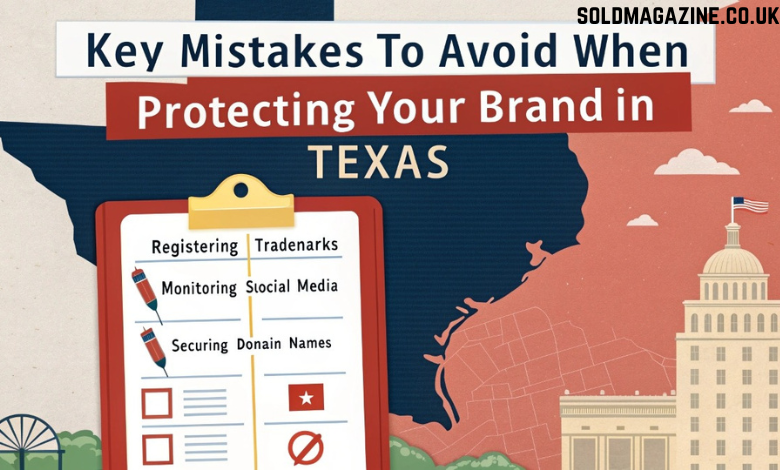Building a business in Texas starts with a name that people trust. But if you don’t protect that name, anyone can use it, twist it, or profit from your reputation. Protecting your brand name isn’t just a legal formality, it’s a business survival move. In a state known for its booming markets, your brand name is your badge of identity.
Texas is home to thousands of startups and established brands. This competition makes legal protection essential. Conducting a Texas Secretary of State company search ensures your registered name is unique, shields you from impersonation, builds credibility, and guarantees that when people search for your brand, they find you, not a copycat.
Why Protecting Your Brand Name Matters
A brand name is more than a word, it’s a promise. It tells customers what you stand for and why they should trust you. When that name gets stolen or misused, your reputation suffers. Protecting your brand name in Texas means securing the foundation of your business identity.
Imagine spending years building customer trust, only to see another company using a name similar to yours. That confusion can lead to lost sales and legal headaches. Brand protection ensures your investment in marketing and quality pays off for you, not for imitators trying to ride your success.
Understanding Brand Name Protection in Texas
Brand protection in Texas involves both state and federal laws. You can protect your name through common law rights, state trademark registration, or federal trademark registration. Each offers a different level of protection.
Common law rights arise when you start using your name in business, even without registration. But they only protect you locally. For wider protection, registering your mark with the Texas Secretary of State gives you exclusive rights within the state. For national coverage, a USPTO registration is the strongest layer of defense.
Common Law Trademark Rights in Texas
Under Texas common law, using your brand name in commerce gives you basic rights. If someone in your local market uses a confusingly similar name, you can challenge them in court. However, you’ll need to prove that you used the name first and that customers associate it with your goods or services.
The limitation? These rights only apply where your brand has recognition. So, if you operate in Houston, another business in Dallas might use a similar name unless you’ve registered your mark. That’s why formal registration gives you more control across Texas.
Registering Your Brand Name with the Texas Secretary of State
Texas offers a simple way to register your brand name at the state level. You can file a trademark or service mark application with the Secretary of State’s office. This registration gives you exclusive rights to use that name for your goods or services within Texas.

The process involves checking that no one else has already registered a similar name. Once approved, your registration lasts for five years and can be renewed. This registration gives you legal proof of ownership, which helps when sending cease-and-desist letters or defending your brand in court.
Federal Trademark Protection Through USPTO
If you plan to expand beyond Texas, federal trademark protection is your best option. The United States Patent and Trademark Office (USPTO) grants nationwide protection to approved trademarks. With a federal mark, you can prevent others in any U.S. state from using confusingly similar names.
Federal registration also lets you use the ® symbol, adds your brand to the public trademark database, and gives you the right to sue in federal court. It’s the strongest layer of brand name protection and a must for Texas businesses that want to scale nationwide.
How to Choose a Strong Brand Name
Not all names qualify for trademark protection. Generic or descriptive names often get rejected. The strongest names are distinctive, memorable, and unique. Avoid names that merely describe what you do like “Texas Coffee Shop.” Instead, go for something creative that stands out.
Strong names fall into categories like fanciful, arbitrary, or suggestive marks. “Google,” for example, is fanciful because it’s invented. “Apple” is arbitrary because it doesn’t describe computers. A suggestive name hints at what you do without saying it directly like “Netflix” for internet flicks.
Checking Brand Name Availability in Texas
Before you register, check that your brand name isn’t already in use. The Texas Secretary of State’s SOSDirect website lets you search existing trademarks. You should also check the USPTO Trademark Electronic Search System (TESS) for national marks.
Don’t forget to search domain names, social media handles, and even local business listings. If you find similar names, consider choosing another to avoid confusion. Doing this due diligence saves you from rejection, rebranding costs, and legal battles later.
Digital Protection and Online Branding
In today’s world, protecting your brand name extends beyond legal paperwork. You need to guard your digital identity. Secure your domain name, register it under your brand, and claim your business profiles on platforms like Google, Facebook, and LinkedIn.
You should also monitor online mentions and set up alerts for unauthorized use. Many Texas businesses fall victim to online impersonation or fake websites. A digital protection strategy ensures no one uses your name to mislead customers or damage your credibility.
Trademark Enforcement in Texas
Once your brand name is registered, the next step is enforcing your rights. You must monitor the marketplace and act quickly if someone infringes on your name. Send a cease-and-desist letter to the violator and demand they stop using your mark.
If they refuse, you can file a lawsuit in Texas courts or, for federal marks, in federal court. Having a registered trademark gives you legal leverage, making it easier to win damages and attorney fees. Proactive enforcement shows others that your brand name is not open for misuse.
How to Handle Brand Name Infringement
When someone uses your brand name without permission, gather evidence first. Take screenshots, save emails, and collect examples of misuse. Then, contact an attorney who specializes in intellectual property law. They can guide you on whether to negotiate, send a warning, or file a lawsuit.
In some cases, infringement happens unintentionally. A polite warning may resolve it quickly. But if the other party refuses to comply, legal action might be the only way to protect your brand reputation and prevent further confusion among Texas consumers.
Cost of Protecting a Brand Name in Texas
The cost of brand protection depends on the level of registration you choose. A Texas state trademark costs around $50 per class, while federal registration with the USPTO costs between $250–$350 per class. Hiring an attorney adds additional fees but ensures proper filing and fewer errors.
While the upfront cost may seem high, it’s small compared to the financial loss of rebranding or fighting infringement. Think of trademark protection as insurance for your brand’s identity—it pays off when you least expect it.
Maintaining and Renewing Your Trademark
Trademark protection isn’t permanent. In Texas, your mark lasts for five years, after which you must renew it. For federal trademarks, you must file maintenance documents between the fifth and sixth year, and renew every 10 years.

Failing to renew can lead to cancellation, which means you lose your exclusive rights. Always mark renewal dates in your business calendar and keep your information updated with the Secretary of State or USPTO. Consistent maintenance keeps your brand protection strong.
Building a Brand Reputation in Texas
Legal protection is only half the battle. You must also protect your reputation. Build customer trust through quality service, consistent branding, and positive engagement. When people respect your brand, they become your first line of defense against imposters.
In Texas, where communities are close-knit and word-of-mouth travels fast, reputation protection adds another layer of strength. A respected brand naturally discourages misuse because copycats know loyal customers can tell the difference.
International Protection for Texas Brands
If your Texas brand plans to go global, consider international protection. The Madrid Protocol allows you to extend your U.S. trademark to multiple countries with one application. This helps you prevent foreign companies from using your name abroad.
International protection is vital for online sellers and e-commerce brands. Since your products can reach customers worldwide, international registration keeps your brand safe from misuse outside U.S. borders.
Key Mistakes to Avoid When Protecting Your Brand
Many Texas entrepreneurs assume registering a business name with the Secretary of State automatically gives trademark rights. It doesn’t. Business registration and trademark registration are two different things. The first allows you to operate; the second protects your brand identity.

Another common mistake is ignoring monitoring after registration. If you don’t watch for infringements, your mark loses its strength. Protecting your brand name is an ongoing process that requires regular checks, updates, and enforcement.
Final Thoughts
Protecting your brand name in Texas is an investment in your business future. From state filings to federal trademarks and digital safeguards, every step adds a layer of defense around your identity. Without protection, your brand is vulnerable to theft, confusion, and reputation damage.
A strong legal foundation builds customer trust and gives your business long-term stability. Whether you’re a startup or an established Texas enterprise, securing your brand name today means protecting your legacy tomorrow.
FAQs About Protecting Your Brand Name in Texas
How does a business name differ from a trademark?
A business name identifies your legal entity, while a trademark protects how your brand appears in the marketplace. Registering a business name in Texas doesn’t automatically give you trademark rights. Only trademark registration, either at the state or federal level, grants exclusive usage rights and legal protection against imitators.
Can I trademark a name that’s already in use in Texas?
No, you can’t trademark a name that’s already registered or in active use. Texas law prevents duplicate or confusingly similar marks. Before filing, you must check both the Secretary of State’s database and the USPTO database to ensure your name is unique. If it’s taken, modify your name to make it distinct.
What is the typical time frame for registering a trademark in Texas?
The state trademark registration process usually takes 6 to 8 weeks if your application is complete and no objections arise. Federal trademarks, on the other hand, can take 8 to 12 months due to the examination process at the USPTO. The timeline depends on accuracy, clarity, and the examiner’s workload.
What if someone uses my brand name online without permission?
If someone uses your name on social media, websites, or e-commerce stores, document the misuse and report it to the platform. Most sites have trademark complaint forms. If the issue continues, send a legal notice through an attorney. You can also file a lawsuit for infringement in Texas or federal court.
Does trademark registration protect my logo too?
Yes, but only if you register the logo as part of your trademark. You can file for a word mark (just the name) or a design mark (name with logo). Registering both offers better protection since it covers both your brand name and its visual identity. Many Texas businesses register both types to stay fully protected.
Is it necessary to hire a lawyer for trademark filing?
Although it’s not mandatory, enlisting the help of a lawyer is strongly advised. Trademark law can be complex, and a professional ensures your application meets all legal requirements. They also handle conflicts or oppositions that may arise during the process. For Texas entrepreneurs, this small investment can prevent major legal troubles later.
Can I use my brand name nationwide after Texas registration?
No, a Texas trademark only protects your brand within the state. For national rights, you must register with the USPTO. Without federal protection, another business in a different state could legally use your name. Nationwide recognition requires federal registration and consistent brand use across states.
What happens if I don’t renew my trademark?
If you don’t renew your Texas trademark after five years or your federal mark after ten, your protection expires. This means anyone can register a similar name or use it without legal consequences. Always keep track of renewal deadlines to maintain continuous ownership and avoid losing your brand rights.
Can I sell or transfer my trademark in Texas?
Yes, you can sell, license, or transfer your trademark rights. This process is called assignment. It must be documented in writing and recorded with the Texas Secretary of State or USPTO. Transferring your mark can generate revenue and allow others to use your brand under specific agreements.
How do I protect my brand internationally?
You can extend your U.S. trademark internationally through the Madrid Protocol, which covers over 120 countries. This is crucial for Texas businesses exporting products or selling online globally. International protection ensures your brand name remains yours no matter where your customers are located.




